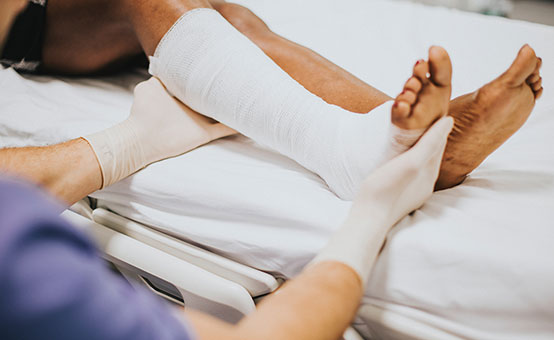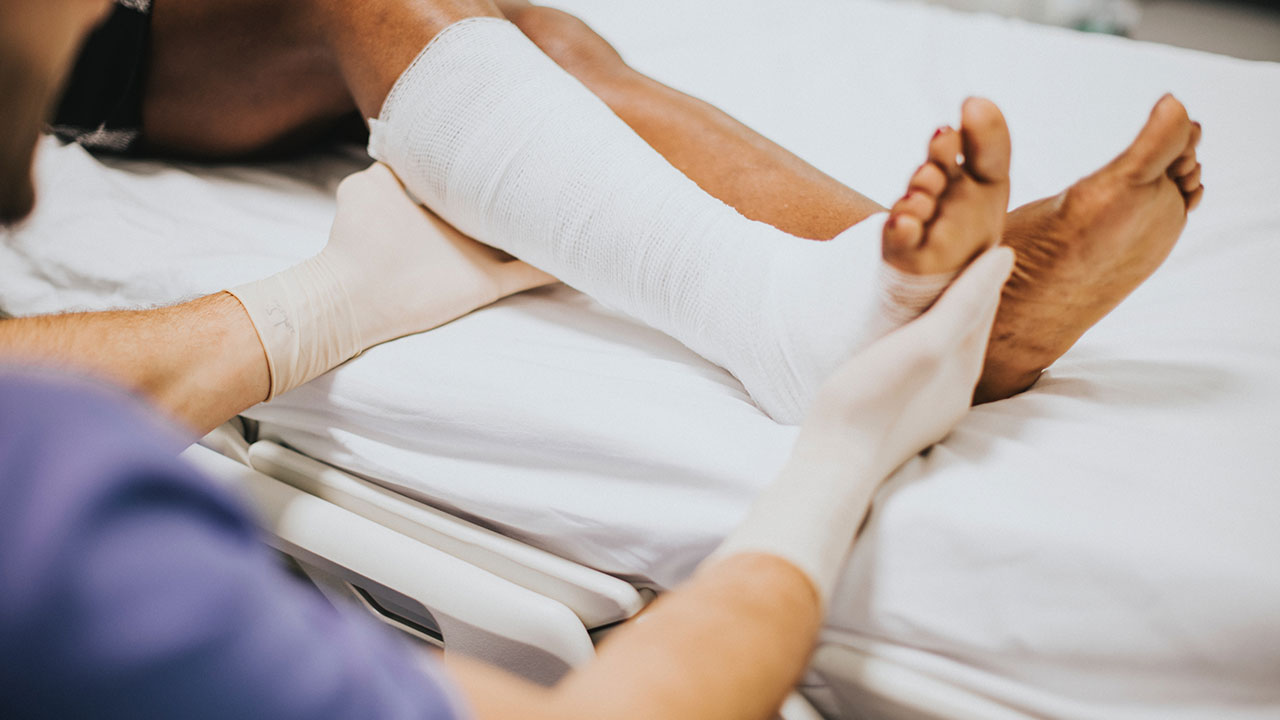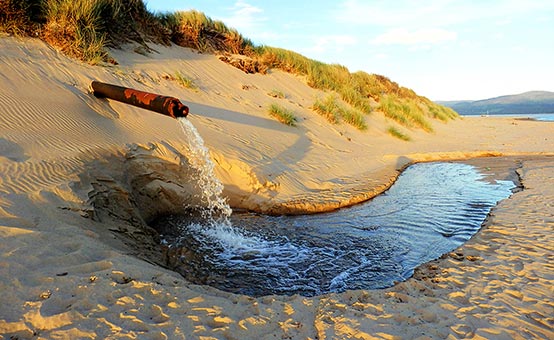

This story was originally broadcast by NBC News on July 1, 2019.
While these infections are rare -- between 700 and 1,200 cases in the US each year, according to the CDC -- a new study released last month suggests that cases of these deadly infections, called necrotizing fasciitis, may be on the rise in waters that were rarely affected in the past.
Necrotizing fasciitis is caused by rare bacteria such as Vibrio vulnificus and Group A Strep (most common) entering the body through a break in the skin, such as a scratch, cut, burn, or other open wound. It can also begin as an intestinal infection after the consumption of affected seafood. Both routes can lead to infections of the bloodstream. The infection develops rapidly and can become fatal if not treated promptly with the proper antibiotics. And although it's rarely contagious, people with a weakened immune system, the elderly, and the very young are at greatest risk.
Flesh-eating bacterial infections can be difficult to diagnose in the early stages because the symptoms often look similar to those of other diseases.
Early symptoms include red or swollen areas of the skin, severe pain (even beyond the red or swollen areas), and fever.
Later symptoms can include changes in skin color, ulcers, blisters, black spots, pus or oozing from the affected area, nausea and/or diarrhea, dizziness, or fatigue.
The best recommendation is to avoid spending time in lakes, rivers, oceans, swimming pools, and hot tubs if you already have an active skin infection, an open wound, or a surgical incision site that hasn't yet completely healed. Also, avoid consuming seafood from affected waters. Check with the CDC, WHO, or local health officials at your planned destination for details about any active/suspected seafood alerts for the area.
Serious complications are common with necrotizing fasciitis, so prompt treatment is absolutely critical. If you suffer a scratch, cut or puncture while out enjoying the water, thoroughly clean the injured area with soap and water -- or use alcohol if washing isn't possible -- and cover the wound with clean, dry bandages. Then keep a close eye out for the development of any symptoms. If you suspect you may have been exposed, seek professional medical attention immediately.
MORE FROM
SAFE PASSAGE

TRAVEL HEALTH | Mar 25, 2018
Warning: This Unseen Threat Can Ruin Your High Seas Adventure

TRAVEL HEALTH | Nov 19, 2015
Microbial Hazards of the Sea
THIS WEBSITE DOES NOT PROVIDE MEDICAL OR DENTAL ADVICE.
It is intended for general informational purposes only and does not address individual circumstances. It is not a substitute for professional medical or dental advice, diagnosis or treatment and should not be relied on to make decisions about your health. Never ignore professional medical or dental advice in seeking treatment because of something you have read on the DAN Boater website. If you think you may have a medical emergency, immediately call your doctor, dial 911, or contact emergency services nearest you.